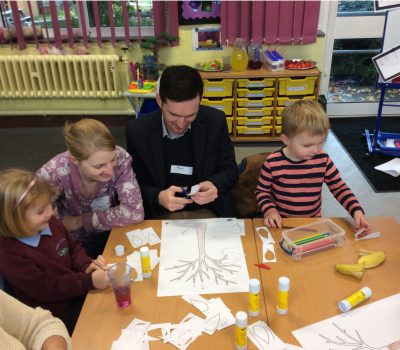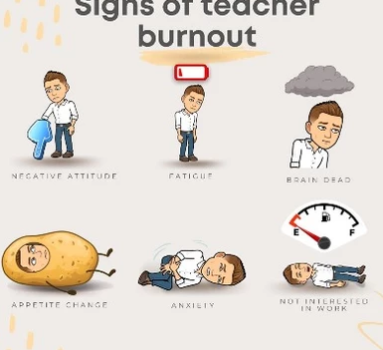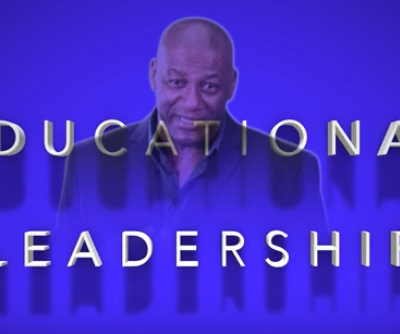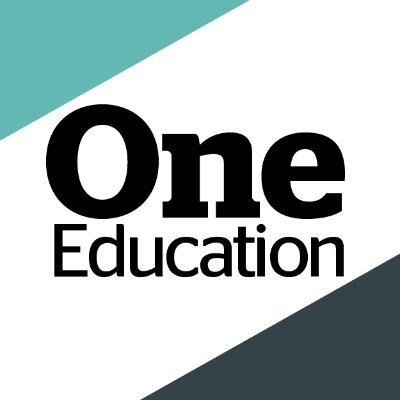


Our team sorts through all blog submissions to place them in the categories they fit the most - meaning it's never been simpler to gain advice and new knowledge for topics most important for you. This is why we have created this straight-forward guide to help you navigate our system.


And there you have it! Now your collection of blogs are catered to your chosen topics and are ready for you to explore. Plus, if you frequently return to the same categories you can bookmark your current URL and we will save your choices on return. Happy Reading!
How can we expect our students to research properly if we rely solely on Google and YouTube?
We must be an example to create diligent and inquisitive researchers.

I recently published a post on Research and Information Fluency in the classroom. This is definitely a key skill for any student to have today. Students know how to use their devices for entertainment and socializing, but it’s our jobs as educators to teach them how to use them for learning. Educational leaders play a vital role in this arena.
How many of you still use Google as your primary source for getting information? How about YouTube? Both are great resources for learning but do you know how to tell if a site is valid and authentic? If most adults don’t take time to verify the authenticity of a source, can we expect students to? Like using technology for learning purposes, we have to teach students how to conduct reliable searches, how to disseminate information, and how to tell if a source is valid. On top of those lessons, we have to model good digital literacy ourselves.
This is actually true regardless of the industry. Wes Kieschnick once shared that teachers ask between 300-400 academic questions a day, compared to students asking 1.8 on average. Let’s transfer that into other industries, as well. How often is it that leaders are the ones asking all of the questions versus the employees? Part of having information fluency is knowing how to construct questions, to identify problems, and to know how to conduct research to find solutions.
I love this quote by Abigail Adams, “Learning is not attained by chance, it must be sought for with ardor and diligence.” I’ve never met anyone who is passionate about sitting and listening to someone else ask all the questions and give all of the answers. The desire for learning is fanned from personal involvement. When people (at any age) get to drive their own learning through observation, wondering, questioning, and researching then they are more apt to seek the answers with ardour and diligence. It’s our jobs as leaders to equip them with the tools and strategies to be successful in that drive. No leader truly wants employees sitting around waiting to be assigned a problem to solve. We want people who are adept at processing multiple channels of information and identifying the problem from there. We want team members who know where to go to find resources to guide discovery and that aid in creating a framework for next steps. We want both problem identifiers and problem solvers. In order to do that, they must know how to conduct online research and how to be able to process all of the information they are locating. This starts in today’s classrooms. These skills will allow our students to be successful in today’s worlds. Let’s empower them to drive their own learning by equipping them with the digital literacy skills necessary to succeed. This call to action falls on leaders everywhere and at every level. After we show them how, and while we model best practices, we need to give them the right outlet to share the learning. This could take place in the classroom, in the boardroom, or any variety of online platforms. People have never been more connected than they are today, so let’s make sure to carry this through into everyday learning. People (including students) need to have the freedom to connect and share.
As a leader, how are you facilitating this today? Let’s talk!

The author

Read more

Read more

Read more

Read more

Read more

Read more

Read more

Read more


Are you looking for solutions? Let us help fund them! Nexus Education is a community of over 11,000 schools that come together to share best practise, ideas and CPD via online channels and free to attend events. Nexus also offers funding to all school groups in the UK via nexus-education.com


Established in 2011, One Education is a company at the heart of the education world, supporting over 600 schools and academies. Our unique appeal as a provider is in the breadth and synergy of the services we offer, supporting school leaders, teachers and support staff to achieve the best possible outcomes for their pupils and staff.

School Space is a social enterprise that has empowered schools for over 12 years through their profitable and hassle-free lettings services. So far, they’ve generated over £5 million in revenue for education, helping to connect over 200 schools with their local communities.





